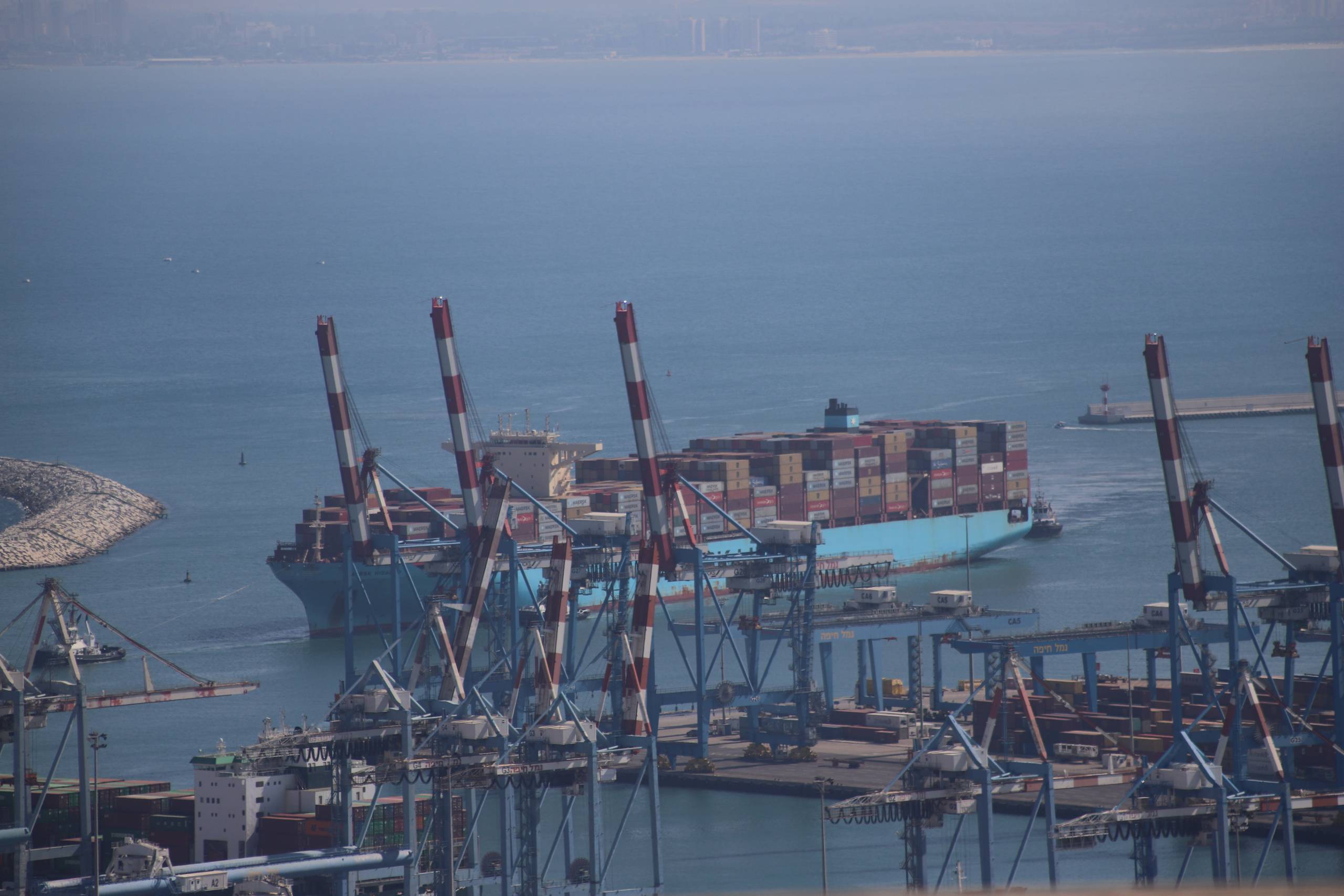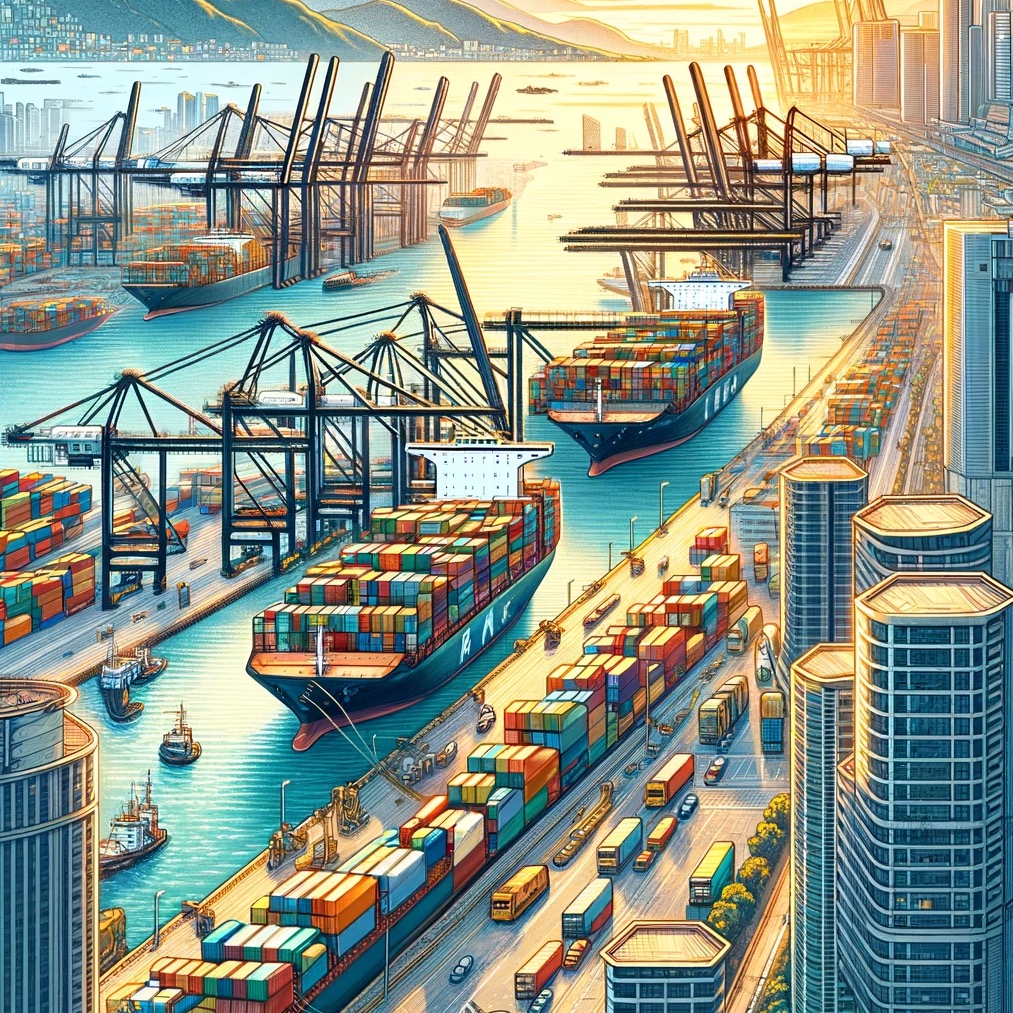MaritimeShipping.org aims to redefine the maritime shipping industry by creating a comprehensive and innovative online platform for all stakeholders involved in maritime logistics. This platform will serve as the nexus for shipping companies, cargo owners, logistics professionals, and maritime enthusiasts, providing a seamless interface that addresses the complexities of global shipping.
At the core of MaritimeShipping.org is its mission to streamline operations and foster transparency within the shipping industry. The platform will offer an advanced, user-friendly interface designed to simplify the logistics process from start to finish. Users will have access to a suite of tools that facilitate the planning, tracking, and management of shipments, ensuring efficiency and reliability in every transaction.
Shipping companies will find MaritimeShipping.org to be an invaluable resource for optimizing their operations. The platform will feature a detailed directory of global shipping routes, schedules, and port information, allowing companies to plan their logistics with precision. Real-time tracking and notifications will keep companies informed about the status of their vessels and cargo, reducing uncertainties and enhancing operational control. Additionally, integrated analytics tools will provide insights into performance metrics, helping companies to make data-driven decisions and improve their services.

Cargo owners will benefit from the platform’s comprehensive shipment management tools. Users will be able to book shipments, compare shipping rates, and monitor their cargo in real-time through a single, unified interface. Detailed documentation and compliance resources will ensure that all regulatory requirements are met, minimizing the risk of delays and penalties. The platform will also facilitate direct communication between cargo owners and shipping companies, fostering transparency and trust.
Logistics professionals will appreciate the collaborative features of MaritimeShipping.org. The platform will offer a marketplace where logistics providers can connect with potential clients, showcase their services, and bid on shipping contracts. Robust networking tools will enable professionals to build relationships, share knowledge, and stay informed about industry trends and developments. Furthermore, the platform will provide access to a wealth of educational resources, including webinars, articles, and industry reports, helping professionals to stay ahead of the curve in a rapidly evolving market.
MaritimeShipping.org will also emphasize sustainability and environmental responsibility. The platform will offer tools for tracking and reducing carbon emissions, promoting the adoption of green shipping practices. Users will have access to information about eco-friendly shipping options, regulatory requirements, and best practices for minimizing environmental impact. By promoting sustainability, MaritimeShipping.org aims to contribute to the global effort to protect our oceans and reduce the shipping industry’s carbon footprint.
- What TIR Means in Transportation and Why You Keep Seeing It on Trucks
- Fleetzero Raises $43M Series A, Opens Houston Factory to Industrialize Electric Shipping
- The Delivery Conference, 2–3 February 2026, London
- TIER IV and Turing Drive Forge Strategic Alliance to Accelerate Low-Speed Autonomous Driving Across Asia
- Federal Maritime Commission Reauthorization Act of 2025, 2025, United States Congress
- Brussels Softens the 2035 Combustion Engine Line, and the Signal Is the Story
- Brazil Prepares to Auction Tecon Santos 10, March 2026, Santos, Brazil
- Shipping Containers, The Quiet Geometry of Global Trade
- Global Traffic Scorecard 2025: A World Stuck in Slow Motion
- AI-Driven Logistics Takes the Stage, Dec 3–6, 2025, Tokyo Big Sight
Community engagement and knowledge sharing will be key components of MaritimeShipping.org. The platform will host forums and discussion groups where users can exchange ideas, ask questions, and seek advice from industry experts. These communities will provide a supportive environment for collaboration and innovation, helping to drive the industry forward. Regularly updated blogs, newsletters, and podcasts will keep users informed about the latest news, trends, and developments in maritime shipping.
To ensure accessibility and inclusivity, MaritimeShipping.org will support multiple languages and be optimized for both desktop and mobile use. This will allow users from around the world to access the platform’s features and resources, regardless of their location or device. Comprehensive customer support will be available to assist users with any questions or issues they may encounter, ensuring a smooth and enjoyable experience.
In conclusion, MaritimeShipping.org is set to become the leading platform for the maritime shipping industry, offering a comprehensive suite of tools and resources designed to enhance efficiency, transparency, and sustainability. By connecting all stakeholders and fostering collaboration, MaritimeShipping.org will play a pivotal role in shaping the future of global shipping, making it more efficient, reliable, and environmentally responsible.
Congestion in the Red Sea is exerting a significant influence on global supply chains
Congestion in the Red Sea is exerting a significant influence on global supply chains, creating a ripple effect that is impacting freight rates more than initially anticipated. The strategic position of the Red Sea as a major maritime corridor, connecting the Mediterranean to the Indian Ocean via the Suez Canal, means any disruption in this area can have widespread consequences. Currently, an increase in shipping traffic, coupled with delays and bottlenecks, is causing substantial congestion.
This congestion is primarily due to several factors. Firstly, the post-pandemic surge in global trade has led to an unprecedented number of vessels transiting through this narrow waterway. Secondly, geopolitical tensions and conflicts in the surrounding regions add to the instability, sometimes necessitating rerouting of ships for safety reasons, which further exacerbates delays. Additionally, infrastructural constraints within the ports along the Red Sea are unable to keep pace with the rising demand, contributing to prolonged wait times for docking and loading.

The poster for the maritime shipping conference
The result of these delays is a noticeable spike in freight rates. As ships are delayed, the availability of vessels decreases, leading to a higher demand for the limited ships that are operational and can meet delivery schedules. Shipping companies, facing increased operational costs due to longer transit times and rerouting, are passing these costs onto consumers through higher freight rates. This increase is not only affecting the cost of goods transported through the Red Sea but is also causing a cascading effect on global shipping rates, as supply chain disruptions ripple outward from this critical chokepoint.
Moreover, industries dependent on timely deliveries are experiencing supply shortages, leading to production slowdowns and increased costs for raw materials and finished goods. The compounded effect of higher shipping costs and supply chain inefficiencies is contributing to inflationary pressures across various sectors, further highlighting the extensive impact of Red Sea congestion on the global economy.
The situation underscores the vulnerability of global supply chains to regional disruptions and the need for diversifying trade routes and improving infrastructural capabilities to mitigate such impacts in the future.